Letter to OSPAR Commission from NGOs Calling for Scrubber Discharge Ban
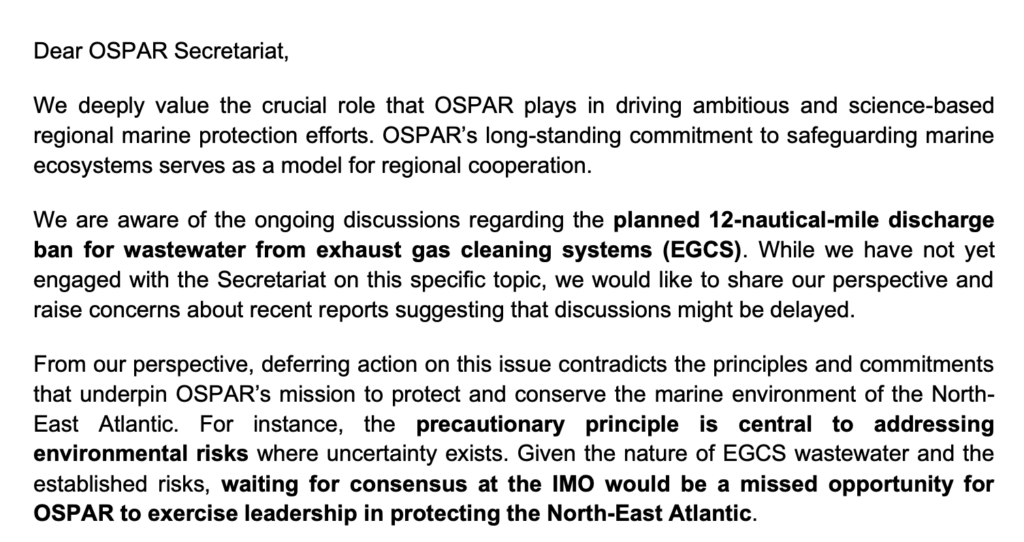
Download: Letter to OSPAR Commission from NGOs Calling for Scrubber Discharge Ban, January 2025. Download: Submission to OSPAR Appeal to ban EGCS discharge – Seas at Risk Dear OSPAR Secretariat, We deeply value the crucial role that OSPAR plays in driving ambitious and science-based regional marine protection efforts. OSPAR’s long-standing commitment to safeguarding marine […]
PPR 12: Shipping Nations Must Switch to Cleaner Fuels To Cut Black Carbon Pollution
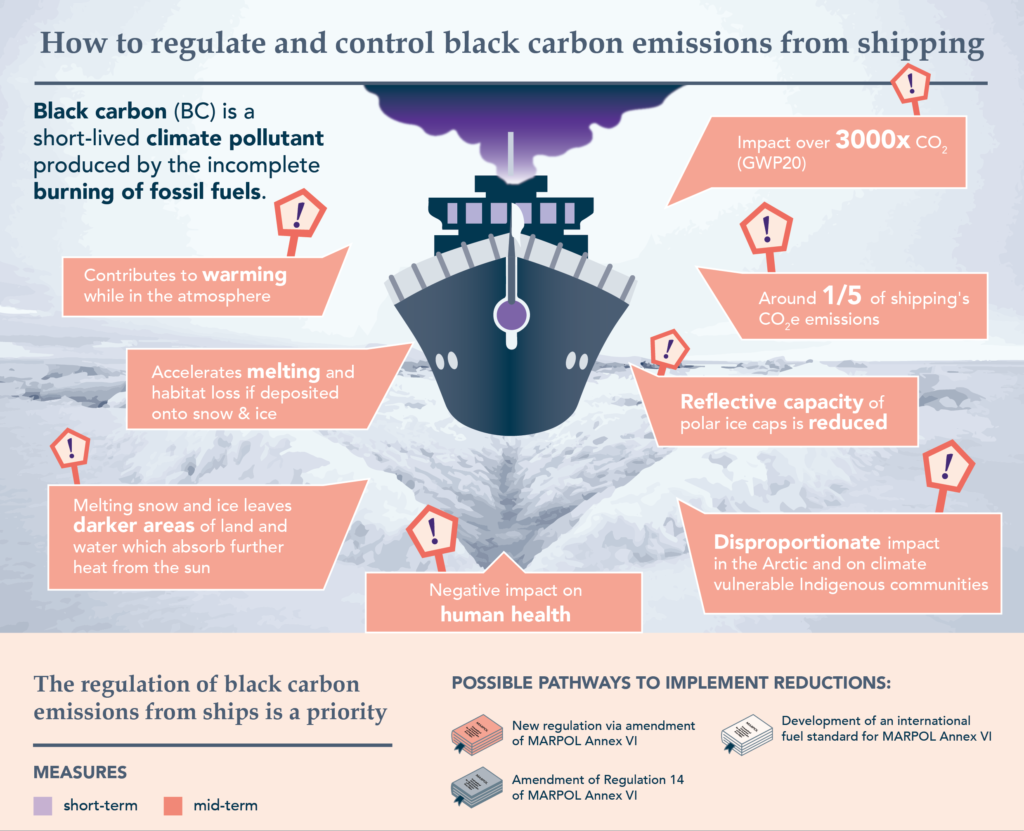
The Clean Arctic Alliance called for the IMO to reduce the impact on the Arctic from shipping’s black carbon emissions by urgently agreeing to regulation which will identifying cleaner fuels more suitable for use in the Arctic.
Infographic: How to regulate and control black carbon emissions from shipping
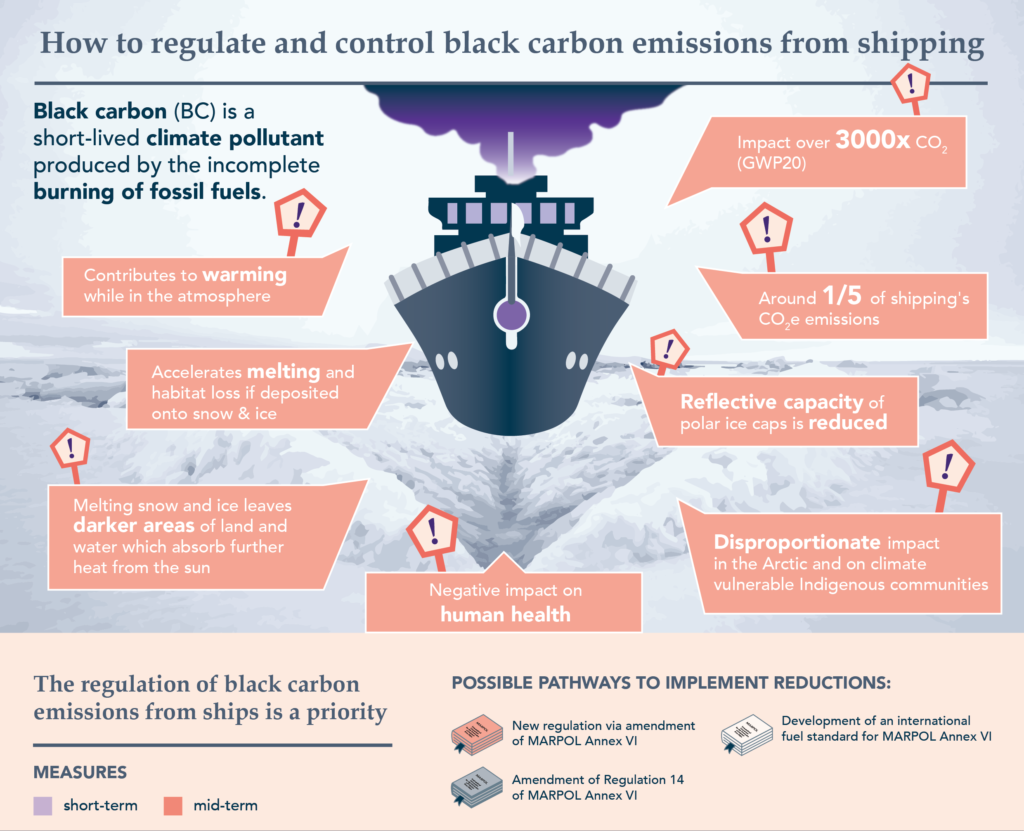
Black carbon is still a threat to the Arctic, the environment and people and the need for urgent action by IMO Members States to regulate emissions of black carbon from ships. This infographic highlights possible pathways for mandatory measures to reduce black carbon emissions and why they must apply throughout the Arctic including the use of polar fuels – including distillate marine fuels such as DMA/DMZ.
PPR 12: An IMO Commitment to Polar Fuels Could Cut Black Carbon Emissions
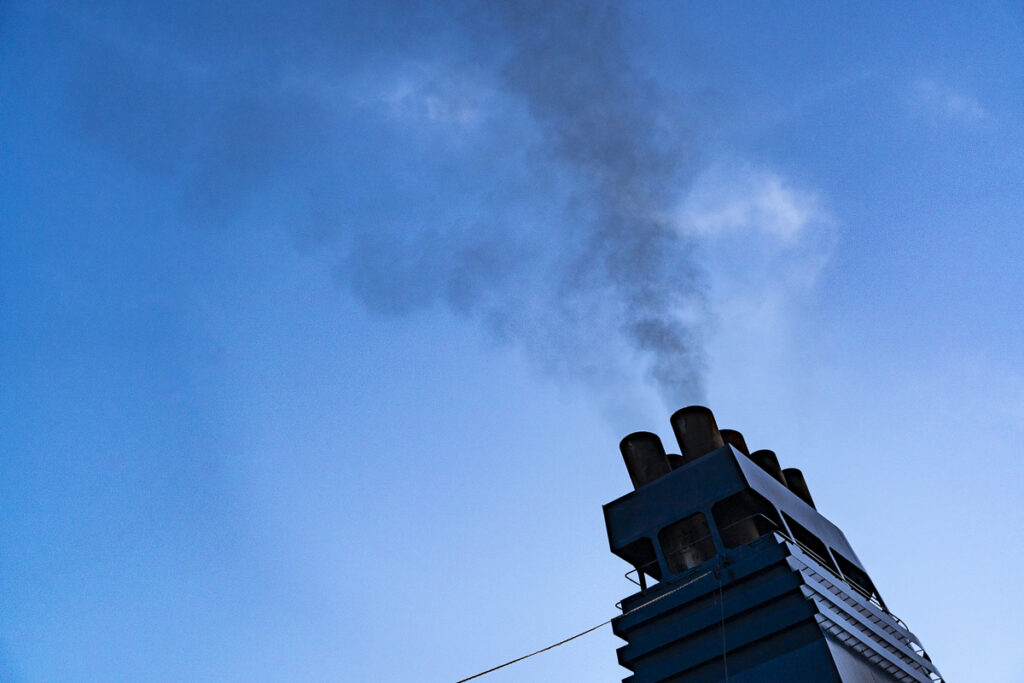
It is imperative that during PPR 12, member states endorse the concept of polar fuels – including distillate-grade marine fuels such as DMA or new fuels resulting in comparable or lower black carbon emissions – and agree as a matter of urgency to regulate emissions of black carbon from Arctic shipping.
Maritime Executive: An IMO Commitment to Polar Fuels Could Cut Black Carbon Emissions
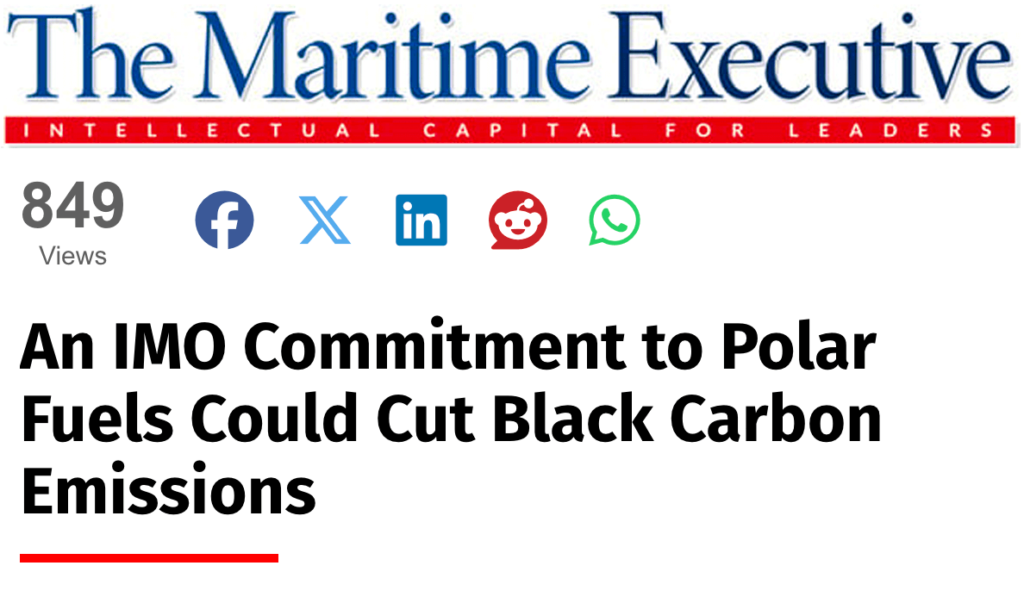
It is imperative that during PPR 12, member states endorse the concept of polar fuels – including distillate-grade marine fuels such as DMA or new fuels resulting in comparable or lower black carbon emissions – and agree as a matter of urgency to regulate emissions of black carbon from Arctic shipping.
Targeting Black Carbon and Methane at the Arctic Council
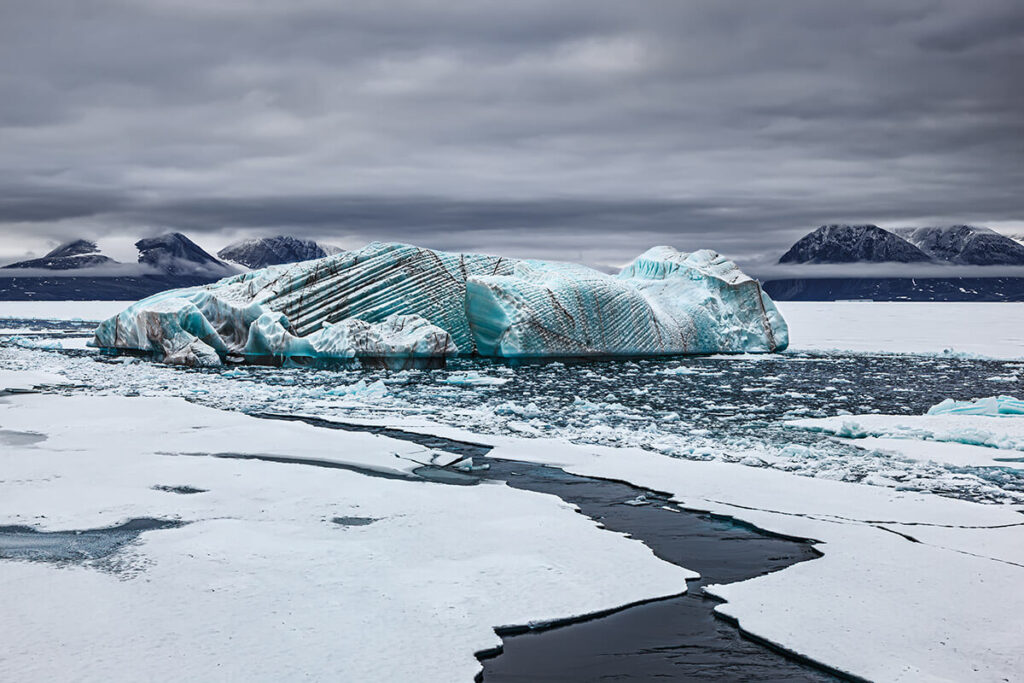
The Clean Arctic Alliance is calling for the Arctic Council, under Norway’s leadership, to adopt new ambitious targets that will reduce emissions of black carbon and methane. Slashing emissions of these two short-lived climate forcers would provide an urgently needed response to the climate crisis, while a ‘business as usual’ approach will ensure the continued loss of Arctic sea ice and severe climate disruption in the region.
Clean Arctic Alliance Vision for Greenland, Faroe Islands, and Denmark Chairship of the Arctic Council
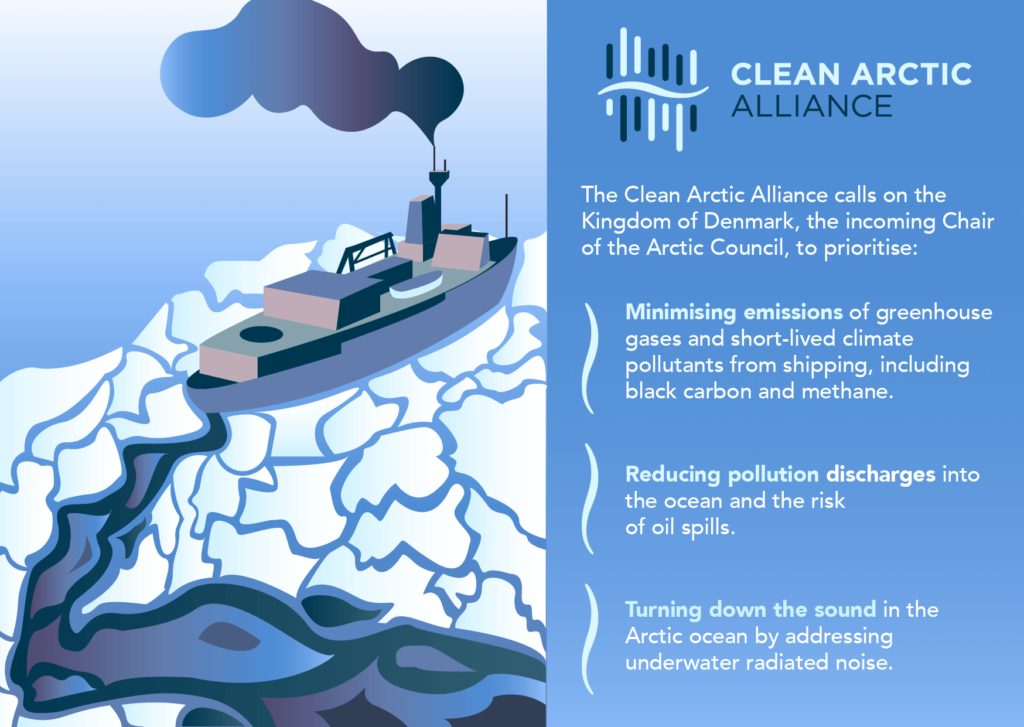
The Arctic is facing unprecedented change. During its two-year Chairship of the Arctic Council, the Kingdom of Denmark will need to focus on reducing climate emissions impacting the Arctic, reducing pollution of the Arctic marine environment and the risk of oil spills, and developing green energy solutions which benefit people and wildlife in the Arctic. These comprehensive themes provide the Kingdom of Denmark with the opportunity to demonstrate global leadership with respect to a region of the world that is in serious trouble.
The KoD’s priorities during its leadership of the Arctic Council will be critical to the future health of the Arctic Ocean.
WWF The Circle: Navigating a changing Arctic
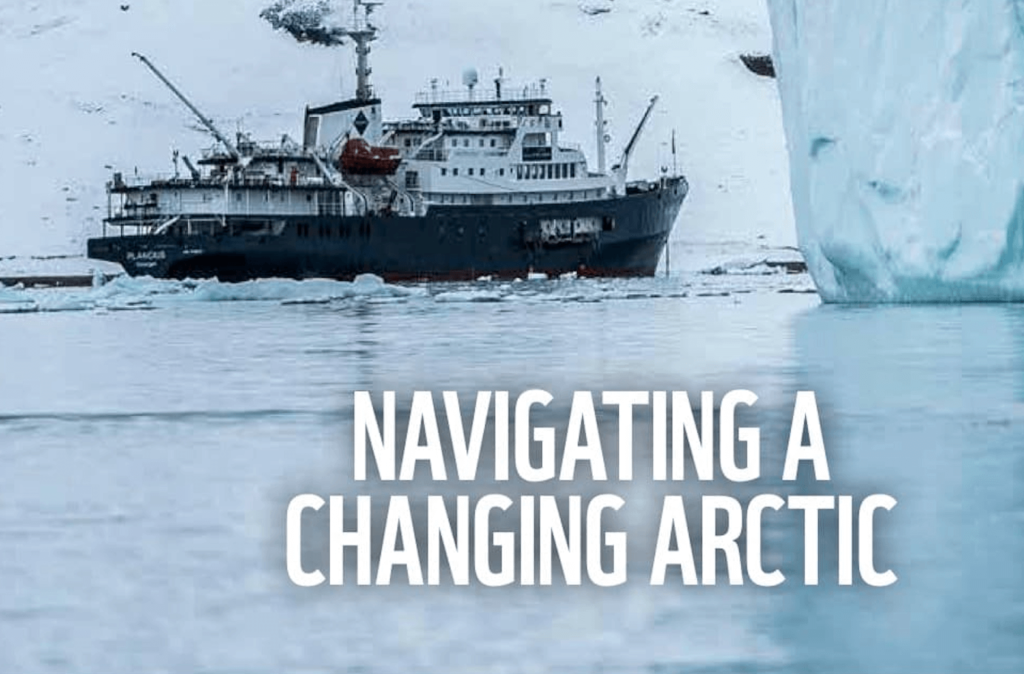
The Circle, a publication of WWF’s Arctic Programme, has published its latest issue, Navigating a changing Arctic, featuring articles from Clean Arctic Alliance organisations and individuals:
High North News: Targeting Black Carbon and Methane at the Arctic Council
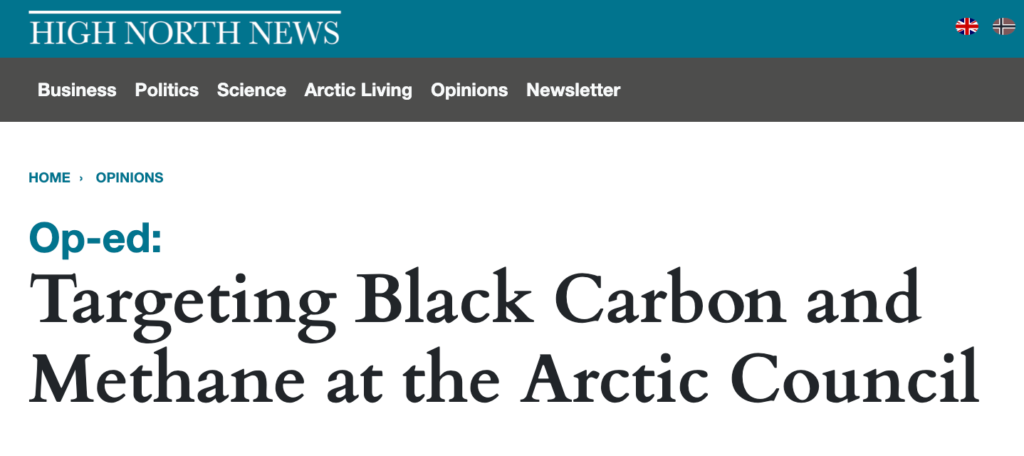
Op-ed: The Clean Arctic Alliance is calling for the Arctic Council, under Norway’s leadership, to adopt new ambitious targets that will reduce emissions of black carbon and methane, writes Dr. Sian Prior and Andrew Dumbrille in this op-ed.
Tradewinds: There’s a simple fix for the Arctic’s climate crisis — use cleaner shipping fuels
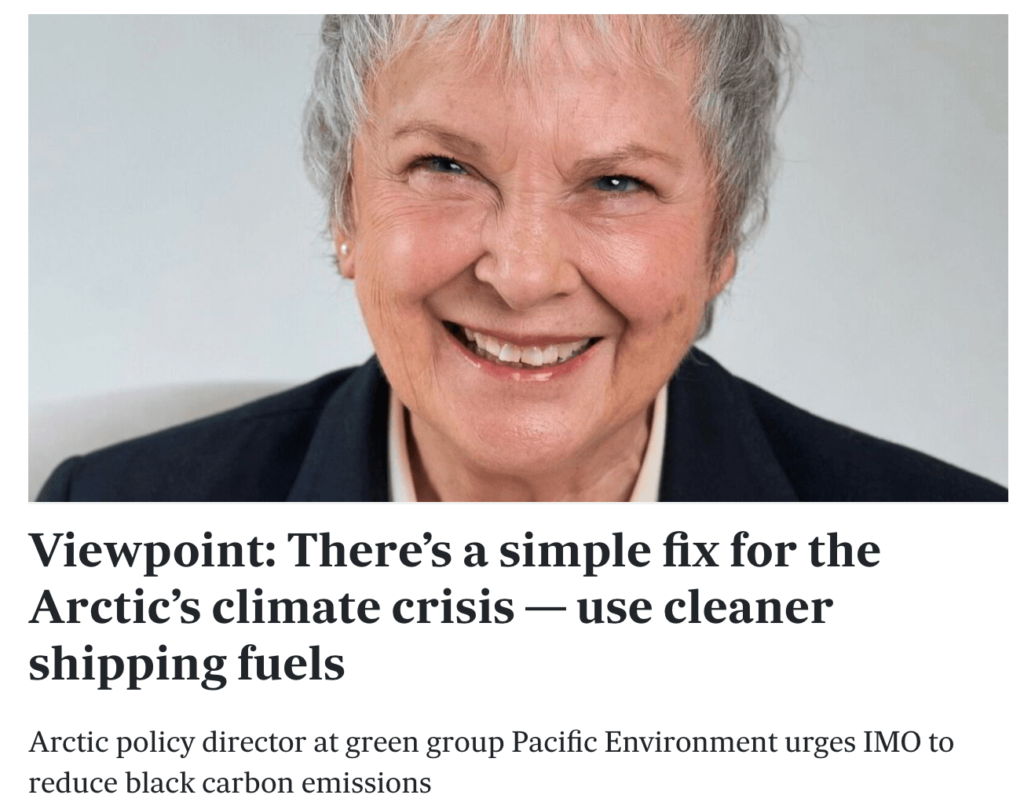
Faced with dramatic sea ice loss, floods, fires, unprecedented emissions and what is expected to be the warmest year ever recorded globally, the International Maritime Organization is again set to consider proposals to reduce black carbon emissions, which generate heat and speed up melting snow and ice in the Arctic.

